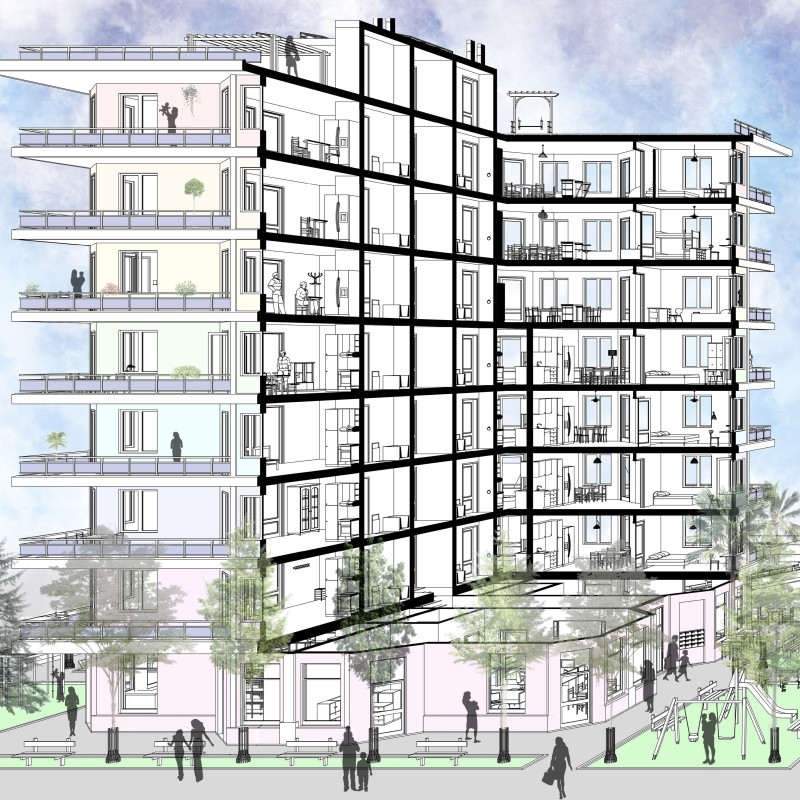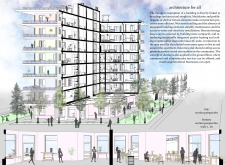5 key facts about this project
The design focuses on solving the pressing issue of affordable housing in urban areas, particularly in cities like San Francisco, where the need for accessible living spaces is critical. The concept emphasizes housing as a basic human right, encouraging a move away from treating it merely as a commodity. By fostering a community-oriented environment, the design seeks to enhance the quality of life for residents while facilitating genuine social connections.
Community-Centric Design
The layout features communal areas on the ground floor, which combine administrative services with opportunities for local businesses. This arrangement helps promote interaction among residents. A pedestrian-friendly design reduces the need for cars, encouraging walking and building a vibrant public life. The shared spaces invite social engagement, creating an atmosphere that fosters a sense of belonging.
Modularity and Scalability
Flexibility is a key aspect of the design. The project employs a modular approach that allows spaces to adapt to changing needs over time. This scalability ensures the development remains functional and relevant as demographics shift. The arrangement balances private living quarters with communal areas, enhancing both individual privacy and community cohesion, which is essential in urban living.
Sustainability Initiatives
Sustainability is a significant focus of the design. Energy-efficient features such as smart building elements and passive heating and cooling systems help to lower energy consumption. The use of renewable resources reflects a commitment to environmental responsibility, aiming to minimize the ecological impact of the building. These initiatives contribute to a sustainable living environment for future residents.
Attention to detail is evident in how the design incorporates both public and private areas. Smooth transitions between shared spaces and individual homes enhance functionality while enriching daily life. This thoughtful arrangement fosters a strong sense of community within the urban setting, promoting engagement and interaction among residents.





















































